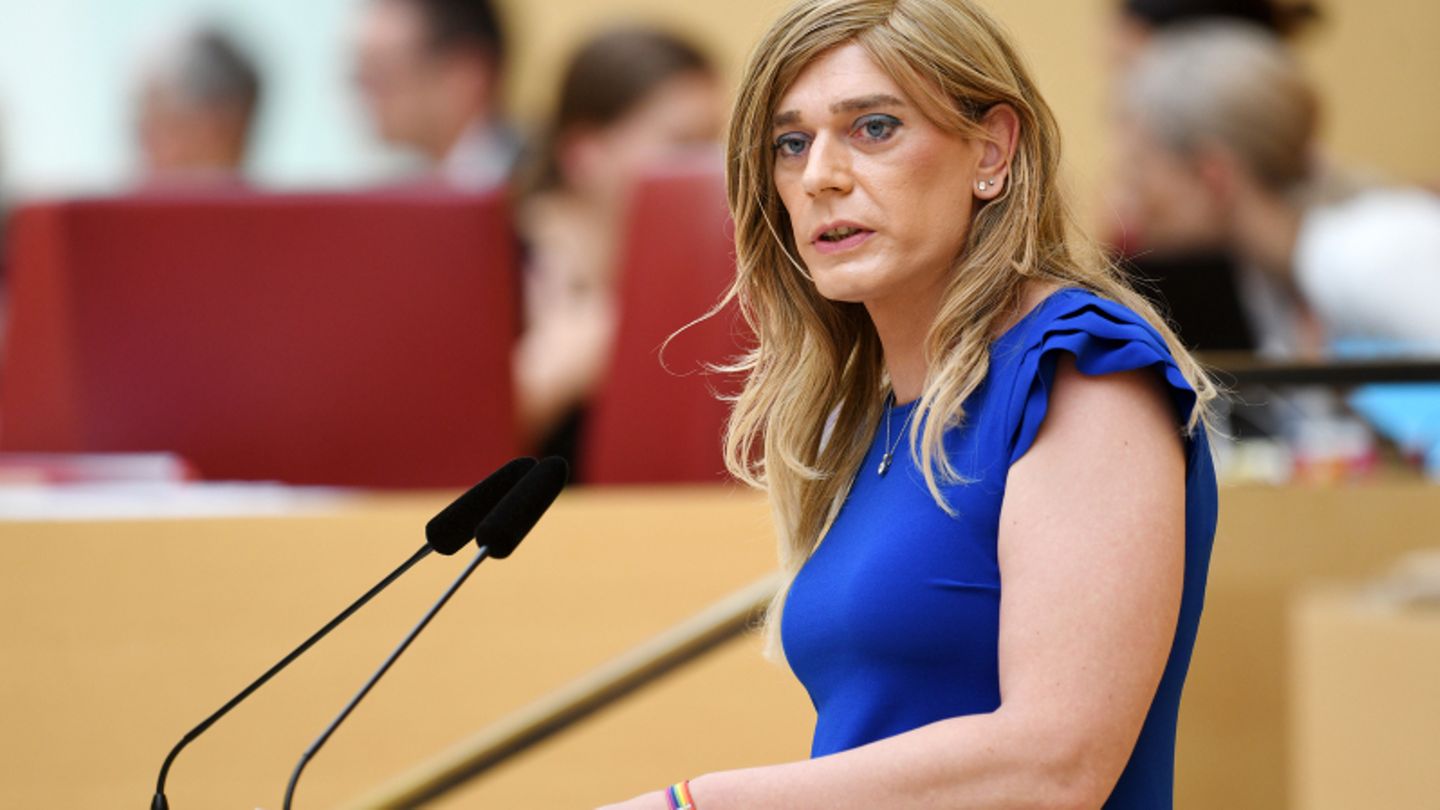Tessa Ganserer is the first politician in Germany to come out as transgender during her tenure. Now she wants to fight discrimination in the Bundestag – and be a role model for others.
“If you want Tessa, you have to vote for Ganserer” – it says in thick white letters on the green election posters. It shows a woman with long blond hair that she has casually tucked behind her ear on one side. She smiles happily at the camera.
Nevertheless, the Nuremberg Bundestag candidate Tessa Ganserer is anything but happy about the posters. These are just a stopgap solution. Because on the ballot paper is Ganserer with a different first name – a male first name that the 44-year-old put down almost three years ago and with which she does not identify. “It’s very painful and humiliating for me,” she says.
Ganserer: “So that others after me have an easier time”
Ganserer has been a member of the Bavarian state parliament for the Greens since 2013, in the first few years still as a member of parliament under male first names. In November 2018, Ganserer was the first politician to come out as transgender in a German parliament. From then on she appeared publicly as Tessa Ganserer – as the woman she always was, as she says.
Since then, Ganserer has been fighting in the Bavarian state parliament as a queer political spokeswoman for the legal equality and social acceptance of transgender people – a struggle that is also personal and that she now wants to continue in the Bundestag – “in the hope of being able to achieve something so that others follow suit easier for me, “she says.
Like many other people in her situation, Ganserer refuses to have her first name and gender officially changed according to the Transsexual Act. The 40-year-old law stipulates that those affected may only do so after a psychological report and a court decision – in doing so, they often have to put up with very intimate questions.
That is why Ganserer’s ID card still contains her first name. In everyday life, this means for her to constantly explain her identity anew, to have to justify herself again and again, during the corona test when she wants to pick up a rental car or when checking tickets on the train, she explains.
Several openly living trans people on electoral lists
The German Society for Transidentity and Intersexuality estimates the proportion of transgender people in Germany at 0.3 to 0.6 percent. There are no representative surveys for Germany – and according to the Bundesverband Trans * eV, not all of them are openly transgender in all areas of life. Studies therefore assume that 50 to 70 percent have come out in professional life, depending on the industry.
So far there has only been one trans person in the Bundestag, but she only came out after her term of office. “The federal elections in 2021 are a historic moment in this regard,” says Gabriel_Nox Koenig from the Bundesverband Trans * eV Because with Tessa Ganserer, her party colleagues Victoria Broßart (Bavaria) and Nyke Slawik (NRW) and the SPD politician Ria Cybill Geyer (Brandenburg) openly living trans people are represented on the electoral lists for the first time. At least for Ganserer and Slawik, entry into the Bundestag is likely, but Broßart could still have a chance.
Climate change, but also her personal story, have persuaded 27-year-old Nyke Slawik from Leverkusen to run for the Greens in the federal elections. “After my transition, I went through many experiences that I found discriminatory,” she wrote in an email. “Like the degrading, lengthy, and expensive process of changing names.”
In addition, she grew up without role models because transgender people had not been present in politics so far. “I want to change that,” says Slawik and adds: “I hope that it will be more difficult to discriminate against us as a gender minority when we are finally at the table.”
It was only in May that the Greens and the FDP made an attempt in the Bundestag to abolish the Transsexual Act and replace it with a law for gender self-determination. The two bills failed, however: the government factions and the AfD voted against it.
David William is a talented author who has made a name for himself in the world of writing. He is a professional author who writes on a wide range of topics, from general interest to opinion news. David is currently working as a writer at 24 hours worlds where he brings his unique perspective and in-depth research to his articles, making them both informative and engaging.




